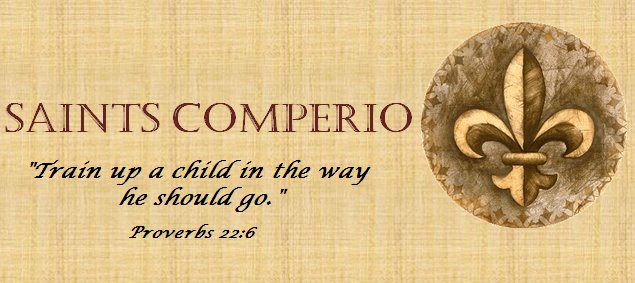The month of March has arrived, and that always reminds me of the March Hare from Alice in Wonderland. The March Hare of course was at that infamous tea party in Wonderland and Alice did indeed 'wonder' what in the world was going on!
Perhaps you feel that way about our math curriculum here at St. John Lutheran, so lest you begin to feel a bit "mad", here are some facts and figures that will help. St. John uses Saxon Math which is a nationally recognized mathematics teaching program. Our students in grades K5 through 8th grade systematically follow the Saxon mathematics curriculum using its scope and sequence of teaching skills and repetitive practice system. The program focuses not only on calculation and accuracy, but also problem solving and mental math. The same math terminiology and procedures are taught beginning from the lowest levels through advanced mathematics.
Instruction on new skills and topics is intermeshed with review and practice of skills previously introduced. Based on brain learning research, the amount and frequency of practice is precisely planned for the best retention and utilization of skills in higher level learning. Topics are not just taught in one chapter of the math textbook each year, but are constantly rewoven into the program. Mathematics does not consist of separate and compartmentalized subjects....rather concepts and skills are interrelated and do not operate separately. Knowing how and when to use operations and which problem solving techniques to use is critical to math success. Accuracy and speed in calculations as well as mental math are included.
Incremental teaching of topics combined with continual practice and review are core values. Skills are never dropped, but constantly practiced and reviewed and tested throughout each school term and across the grades. Prerequisite skills become automatic allowing for mental time and effort to be spent on higher level problem solving. Instruction, practice, and assessment in research based scope and sequences for teaching make Saxon math not only unique, but also successful. Here at St. John Lutheran we have seen consistent improvement in our math achievement test scores at the elementary and middle school levels since implementing Saxon math. High school teachers see the difference as students enter their curriculums.
Most common complaints about the Saxon program from parents center on the daily homework and the constant mixed practice in lieu of large numbers of problems of the same kind. Although different from the chapter by chapter, one skill at a time mathematics textbooks we were raised on, the Saxon math program has made a difference and it shows up in our test scores.
Our Stanford National Achievement Test results in math from spring 2008:
4th grade 96% of students at or above grade level
5th grade 100% of students at or above grade level
6th grade 96% of students at or above grade level
7th grade 98% of students at or above grade level
8th grade 91% of students at or above grade level
Subscribe to:
Post Comments (Atom)

No comments:
Post a Comment